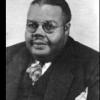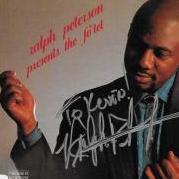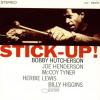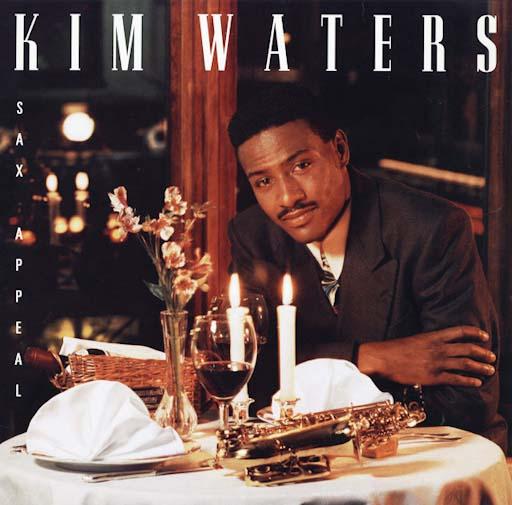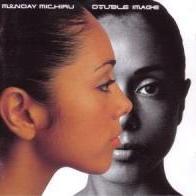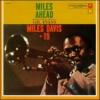Search the Community
Showing results for 'Patty Waters'.
-
Patty McGovern and Thomas Talbert "Wednesday's Child" (Atlantic) 1956 ....
-
Regardless of how US-centric this author may be and what meaning he put into this personal "Ken Colyer" category, any classification of the styles of the entire field of traditional jazz needs to include the European scene too - at least as ONE of the substyles. The European traditional/classic jazz revival scene not only of the post-war years but even way later up to more recent decades played a significant role in "carrying on the flame" (and no, they weren't all copycats). It just was/is so that a lot happened outside the USA and the Traditional jazz revival definitely has not been a US-only affair anymore for quite some time. And not least of all the revivalist traditional jazz scene in Europe provided sympathetic backing (and livelihoods) to many U.S. expats (Albert Nicholas, to name just one, for example, or - right up to his death in 1998 - Benny Waters). (And I'm saying this despite the fact that European revival jazz is nowhere near my top listening priorities) As for naming Ken Colyer first and maybe as the only one in what appears to be a "British" category, this may be due either to the almost legendary role of Ken Colyer as the "purist" among early Brit Trad Jazz exponents, including because of his visits to the US where he absorbed every note, sneeze and cough of his idols in almost folkoristic proportions (which may have endeared him to certain American jazz historians and scribes in hindsight). Or it may really be a case of unawareness of others (Chris Barber? Humphrey Lyttelton? Just two who no doubt had a larger impact in the long run). Awareness of them might have led Wyndham to reassess this category. In general, and (sorry for this, Rabshakeh!) as an OT side note (at the risk of alienating some here ), I often am underwhelmed by US music scribes who are called upon to cover in any depth a "revival" subculture flourishing to a large extent outside the USA. Often their blind spots as to what was going on in these "far away" countries are such that you wonder where in fact they are NOT "sightless". Case in point: The Rockabilly subculture that has been going on all over Europe since the 70s/80s and has evolved in many directions and new facets. FWIW it also provided a new lease of stage life and belated musical apprecation to many US artists who had recorded in the 50s/early 60s (but in their home country had been relegated to playing hick C&W gigs in the sticks by the 80s). There is a basically very nice book called "Rockabilly - The Twang Heard 'Round the World" with contributions by (a.o.) Greil Marcus, Peter Guralnick, Robert Gordon (all no slouches). As the book title implies it covers the European side to some extent - both "then" and "now" ("revival"). But as anyone familiar with this subculture will see from the artists chosen as a cross-section of the European scene, the authors' awareness of the facts - beyond some major acts presented nicely - was cloudy, to say the least. The "then" French acts they chose give a slanted picture and mysteriously include a minor also-ran but bypass bigger artists who did make a splash. And their look at what they term the "Worldwide Revival" by post-1980s bands (shown through a cross-section of album covers) are arbitrary and random and do look like some record shop owner threw a stack of record covers their way when they asked him "Hey, what European bands ARE there, after all?" Amusing for European readers in the know but confusing for those discovering this aspect for the first time. In short, this Ken Colyer thing does not come as that huge a surprise to me. Still I find it odd that he should be singled out as someone who inspired the playing/emulating habits of US bands enough to warrant a separate stylistic category. I think you will agree that this blows up his importance - even in the European Traditional Jazz revival - in a skewed way. Finally, as for the "Kustbandet" ("The Coast Band"), I have listened to quite a bit of their music online but can't point you to any specific album. They recorded a lot from the mid-60s onwards. I suggest you check out their discography here (page 20 onwards in this file) ... http://old.visarkiv.se/jazzdiskografi/jazzdiskografi_K.pdf ... and see what combinations of tunes appeal to you most. However - their records may be hard to come by outside Scandinavia (or in fact Sweden) so you would have to rely on Discogs sellers. Which may make things uneconomical "just for the fun of it".
- 93 replies
-
- classic jazz
- dixieland
-
(and 3 more)
Tagged with:
-
-
To muddy the waters...I do have 3 Attila Zoller Enja reissues that sound better and more lively (Common Cause, Overcome and Dream Bells). OTOH, I've been getting Japanese reissues so am not certain whether they have been remastered or remixed. These three recordings seem to have significantly higher output levels than most of my other Enjas and I don't have to turn the volume up. I have a Japanese reissue of Clay by Yosuke Yamashita Trio (1974) on Enja, haven't listened for a while but recall it as pretty intense and not lacking. Will have to spin it again soon.
-

Album Covers in Purple (but neither deep nor rain !)
soulpope replied to soulpope's topic in Miscellaneous Music
Roger Waters "The Pros and Cons of Hitch Hiking" (Harvest) 1984 .... (in)famous Gerald Scarfe Cover Art feat Linzi Drews .... -

Album Covers in Purple (but neither deep nor rain !)
soulpope replied to soulpope's topic in Miscellaneous Music
Kid North „New Waters“ (Tsunami Addiction) 2016 .... -
A frog walks into a bank, and approaches the teller, whose name plate says Patricia Whack. "Miss Whack, I'd like to get a $50,000 loan to take a vacation." Patty looks at the frog in disbelief, and asks his name. "Kermit Jagger. My father is Mick Jagger. It will be fine to authorize the loan. I know your manager." Patty explains that he will need to secure the loan with some collateral. "Sure, how about this?" said Kermit as he produces a tiny porcelain elephant, about an inch tall, bright pink and perfectly formed. Very confused, Patty explains that she'll have to consult with the bank manager, and disappears into a back office. Patty walks into the manager's office and proceeds to tell him, "There's a frog called Kermit Jagger out there who claims to know you, and wants to borrow $50,000. And he wants to use this as collateral." Patty holds up the tiny pink elephant. "I mean, what in the world is this?" The bank manager looks back at her and says..."It's a knickknack, Patty Whack. Give the frog a loan. His old man's a Rolling Stone."
-
It’s often charming and fun, and poignant in its portrayal of adolescent friendship. Quite an interesting cast, with Peter Sellers (in his first U.S. role, I think) as a charlatan concert-pianist Lothario and Tom Bosley and Angela Lansbury as the parents of one of the two girls who are the lead protagonists, both of whom were played by newcomers. (Hayley Mills and Patty Duke were originally touted for the roles but were unavailable.) It’s also one of director George Roy Hill’s first outings. Based on a 1958 novel by Nora Johnson, daughter of screenplay writer Nunnally Johnson, who partnered with her to adapt the book for the film. Elizabeth T. Walker (billed as Tippy Walker) delivers a mesmerizing performance as Val, the girl in the oversized fur coat. (She went on to make a few more movies and was on the late-1960s weekly TV version of Peyton Place, and is friends with our very own Allen Lowe.) I first came across mention of the film years ago in an article about Daniel Clowes, who cited it as one of the inspirations for Ghost World. (In the movie adaptation Enid has a poster for the film on her bedroom wall.) On the topic of John Szwed, you might also dig his new book Cosmic Scholar: The Life and Times of Harry Smith.
-

Some Blues Recommendations, But Not the Kind That're Blue
soulpope replied to Rabshakeh's topic in Recommendations
R.L. Burnside „Long Distance Call“ (Swingmaster) 1981 …. fabulous Muddy Waters Cover …. -
America over the Waters by Shirley Collins. Seems to have been reissued.
-
I think Continuum may shade it but they are both very impressive. His drumming in Lehman's Octet is pretty impressive too, it certainly was live. And playing here... Joshua Raswon Octet - Polar Waters If I could be bothered to do albums of the year this would be high up and all the better for being a completely new discovery and a bit of a punt. Hints of Kenny Wheeler's writing for Norma.
-
Have the other numbers with Ellington in the film ever been release on cd? (Hesitation Blues, Troubled Waters etc.)
-
There are some inconsistencies comparing the volume 1 tracks to ellington live: Discography: Ellington In Order Volume 1 . Some examples: Why is track 5 (Black and Tan Fantasy) separated from the rest of that session (Creole Love Call, etc.)? Which of the three takes of Washington Wobble is from 10/26/27? Which "I Can't Give You Anything But Love" (tracks 40 & 41) is from 10/30/28 and which is from 11/10/28? Why does my track 41 (d/l from Amazon) give the artist as "Duke Ellington And His Famous Orchestra With Ethel Waters" when it doesn't appear Waters sings on it?
-
I just streamed it for the first time. But I really enjoyed it! Hard to go wrong with Wilson, I think. He's such a joyous spirit. Also, Monty Waters (as, ss) and Ryo Kawasaki (g) are excellent in support.
-
Paul Desmond “Bridge Over Troubled Waters” A&M/Verve cd This one has grown on me over the years. I hear a bit of distortion on this "Verve Original" transfer at times. I may try another pressing one of these days. Also, like many "Verve Originals" this sounds better with the Phase "Reversed" on my DAC.
-
-
The Jimi Hendrix Experience Hollywood Bowl Format(s): Classic Hits, Jazz, Non-Commercial, NPR, Triple A # Artist and Track Title Time 1. The Jimi Hendrix Experience - Killing Floor (Live) (Radio Edit) 03:44 2. The Jimi Hendrix Experience - Sgt. Pepper's Lonely Hearts Club Band (Live) (Radio Edit) 01:41 JIMI HENDRIX EXPERIENCE: HOLLYWOOD BOWL AUGUST 18, 1967 ALBUM COMING NOVEMBER 10 ON EXPERIENCE HENDRIX/LEGACY RECORDINGS HISTORIC LIVE SET MARKS THE MOMENT BEFORE HENDRIX ACHIEVED INT’L FAME; RECORDING HAS NEVER BEEN OFFICIALLY RELEASED OR BOOTLEGGED “KILLING FLOOR” AND “SGT. PEPPER’S LONELY HEARTS CLUB BAND” On November 10, Experience Hendrix, L.L.C. in partnership with Legacy Recordings will be releasing Jimi Hendrix Experience: Hollywood Bowl August 18, 1967 on vinyl, CD and all digital platforms. This live concert performance, captured just five days before the US release of Are You Experienced, their album debut, is notable for being one of the last times the band performed in front of an audience as relative unknowns. Finally, the set can be enjoyed by the rest of the world for the first time ever; amazingly, not a single second of this unique, two-track live recording has ever been released before in any capacity, either via official channels or elsewise. In advance of the November 10 release of Jimi Hendrix Experience: Hollywood Bowl August 18, 1967, the band’s versions of Howlin’ Wolf’s “Killing Floor” and The Beatles “Sgt. Pepper’s Lonely Hearts Club Band” has been made available for download and airplay. During their set, The Jimi Hendrix Experience (Jimi Hendrix, Mitch Mitchell, Noel Redding) blazed through originals such as “Purple Haze,” “The Wind Cries Mary,” and yet-to-be-released classics “Foxey Lady” and “Fire,” as well as their own re-imagining of favorites Bob Dylan (“Like a Rolling Stone”), The Troggs (“Wild Thing”) and Muddy Waters (“Catfish Blues”). Having already conquered the band’s UK base as well as Continental Europe over the previous ten months, the vast majority of the 17,000 plus Los Angeles concert goers were there to see headliners The Mamas & The Papas and were caught off guard by Jimi Hendrix’s electrifying musicality and showmanship. Michelle Phillips, the only surviving member of The Mamas & The Papas, first saw the Experience perform at the Monterey Pop Festival. “We had never heard of him,” she remembers. “I had absolutely no idea what to expect. And when I saw him perform, I was mortified. I had never seen anything like this, I'd never seen anybody treat their instruments like this. He was pouring lighter fluid over his guitar and then setting it on fire and – I really was shocked. I had no experience with this kind of rock and roll theatre. And that was the first time I had ever seen it.” Backstage at the Hollywood Bowl weeks later, Phillips was won over by Jimi Hendrix. “I absolutely loved him,” recalls Phillips in the liner notes for Hollywood Bowl August 18, 1967, penned by Jeff Slate. “He was a gentleman, he was lovely, he was funny.” She softened her view of “rock and roll theatre,” which was somewhat antithetical to the more stayed and pitch-perfect folk tradition from which her group emerged. This very concert wound up being The Mamas & The Papas’ last, while the Experience’s star was rising; they would return to the Bowl the following year as headliners. Phillips remembers, “In a couple of days or months, Jimi Hendrix was the hottest thing happening.” Jimi Hendrix Experience: Hollywood Bowl August 18, 1967 Introduction Sgt. Pepper’s Lonely Hearts Club Band Killing Floor The Wind Cries Mary Foxey Lady Catfish Blues Fire Like a Rolling Stone Purple Haze Wild Thing Jimi Hendrix: Guitar, Lead Vocals Mitch Mitchel: Drums Noel Redding: Bass, Backing Vocals Produced By Janie Hendrix, Eddie Kramer, & John McDermott for Experience Hendrix, L.L.C. For More Information, Please Go To: www.jimihendrix.com www.daggerrecords.com www.truetonegroup.com/jimihendrix
-
Hart To Hart Season 2 Episode 9- Murder Is A Drag. Characters include: Andy Kirkson Mr. Six McGarity Marion Juan Tizol Mrs. Claude Hopkins Detectives Tate & Ewell Harry Carney Sgt. Mezzrow Episode was written by Donald Ross (married to the late Patty Deutsch). Does Mr. Ross have any further work linking him to his obvious jazz awareness?
-
What live music are you going to see tonight?
jlhoots replied to mikeweil's topic in Live Shows & Festivals
Patty Griffin tomorrow. -
Recorded in Cuba, a great session. Stefon Harris/Christopher Scott/David Sanchez “Ninety Miles” Concord cd en.wikipedia.org Ninety Miles Project Ninety Miles Project is both a jazz album and documentary film recorded on Havana, Cuba, in May 2010, and features American jazz artists Christian Scott, Stefon Harris, and David Sánchez. The project also features Cuban composers and artists Rember Duharte and Harold Lopez Nussa. The album was released in 2010 on Concord Picante Records. The follow-up record, Ninety Miles Live at Cubadisco, was released on September 24, 2012. The name alludes to the stretch of waters between America, Puerto Rico...
-
I've read a few articles recently about the new economics of the music business. Here's one, which is long but which I found really interesting: https://www.newyorker.com/magazine/2022/12/12/so-you-want-to-be-a-tiktok-star Here's what's relevant to your question: Swift built her career during the file-sharing era, which changed the business model for many artists, shifting the main source of revenue away from recorded music, which can be pirated, and toward ticket sales to live events. The pandemic ended the touring economy almost overnight. Live-streamed concerts tried to fill the void, but they were pale substitutes for the real thing. With everyone stuck at home, TikTok became the show. Tours returned in full force in 2022, but the TikTok algorithm has remained the sun around which the music industry orbits, and the arbiter-in-chief of what’s hot. Top Ten songs on radio and streaming charts often start trending first on TikTok. As many as a hundred thousand new tracks are now released by record labels and individual musicians every day on any number of platforms. Having a viral video attached to part of a song is one of the few ways to capture anyone’s attention. Virality also tilts the arcane economics of streaming in the copyright holders’ favor, because the worth of any single stream is based on the percentage of a streaming platform’s total monthly streams that the song commands. In other words, a lot of listens in a short amount of time will make you more money per stream than a slow-burner will. In a nutshell: People make TikTok videos. They're short, but they still need music. If the TikTok creator uses Waters's version rather than Pink Floyd's, Waters will earn the royalties from that TikTok view. Each view's earnings might be minimal, but it can add up, especially if the algorithm pushes the video to people who might not otherwise see it. Here's another fascinating article, but you may encounter a firewall: https://www.wsj.com/arts-culture/music/streaming-is-changing-the-sound-of-music-182dc907?mod=Searchresults_pos12&page=1 This will be relevant if Waters rearranged any of the DSOTM songs to move the hook or chorus to the initial 30 seconds of the song.
-
Anyone aware of Roger Waters remaking this classic album? What's the point? And he's been a prick about it (which is usual, from what I gather), not even telling his ex-bandmates about it. I listened to "Time"...sorry, his new version sucks.
_forumlogo.png.a607ef20a6e0c299ab2aa6443aa1f32e.png)
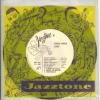
.thumb.jpg.e81ae82fe03dd23aa9c0065b7a948b7a.jpg)



